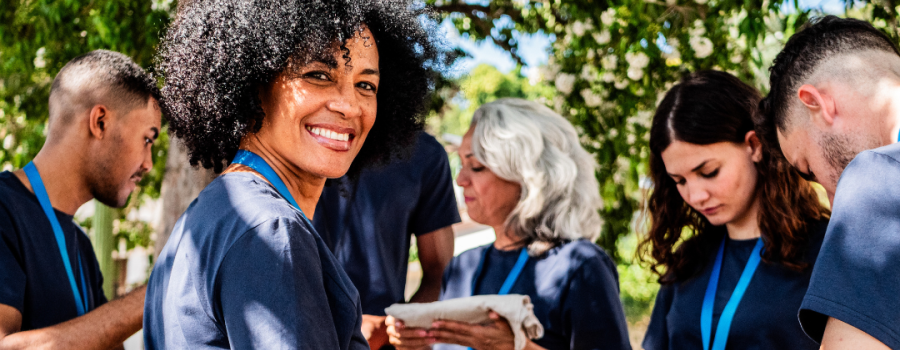Tragedies are an unfortunate inevitability of life. Grief is the aftermath. It’s the fear and sadness and impending sense of doom as we look into a future where something we loved is missing forever.
Sometimes entire communities experience an emotionally or physically devastating event which leads to “collective grief” in which the devastation is felt by a large group of people. Some of these events include natural disasters, violence in the community, pandemics, or death of culturally significant people. When these tragedies occur, it can be healing to find ways to rebuild around the loss.
In Minnesota, many people are experiencing collective grief through the recent assassination of Melissa Hortman, a Minnesota state representative, and her husband Mark. Even though many Minnesotans didn’t know this lawmaker personally, the act of violence against her sent a jolt of panic and dread through not only the communities she served, but the entire country. More examples of collective grief include the families in Texas who are experiencing unprecedented and life-threatening flooding. The entire world experienced collective grief as we navigated the COVID-19 pandemic.
While collective grief happens to large groups of people, each person’s experience or ability to cope is unique. Some people respond with fight or flight, which could look like avoiding the stressors, using distractions, or facing the event head on by joining causes to prevent the event from happening again. If you’ve ever experienced collective grief, you may feel your energy is depleted or that daily tasks seem less manageable. However you feel about the tragedy, it’s important to take care of yourself and the people you care for. You are not alone in your grief.
Tips for navigating collective grief
Some things you can do for yourself when your community is grieving could include:
- Taking breaks from social media or the news. It’s okay to use distractions to get through the hard days, like watching a comforting TV show or reading a book.
- Using grounding techniques to help bring your focus back to the present when you feel like the world gets a little bit too loud.
- Remembering your circle of control – identify the things you can and cannot control. What can you work with versus what do you need to let go?
- Spending time talking to your neighbors or family members. Connecting with others is important during the grieving process.
Finding ways to get involved in your community’s recovery can also help you and your community cope with collective grief. One way to do this is through mutual aid; this is when community members come together to exchange resources and support. Mutual aid brings community members together to solve common problems like food insecurity, housing stability, childcare, and disaster relief. This may look like:
- Making your neighbors soup.
- Offering to give rides to people in your community.
- Gathering resources for childcare in your area and sharing that information with those who need it.
- Starting a food shelf.
- Filling your neighborhood free libraries with books.
- Supporting local farmer’s markets.
- Donating necessities to local nonprofits.
For more on how you can help in your community, find the resources that already exist in your area and help them thrive by participating and engaging in their events and programs. Often, grassroots movements like this are the start of healthy and thriving communities that are resilient when tragedies occur.
This blog article was contributed by Maggie Taylor, Mental Health Practitioner at the Southeast Regional Crisis Center.
Nexus Family Healing is a national nonprofit mental health organization that restores hope for thousands of children, families, and adults each year through services in community mental health, crisis and stabilization, foster care and adoption, and residential treatment. For over 50 years, we’ve used innovative, personalized approaches to heal trauma, break cycles of harm, and reshape futures. We believe every child is worth it — and every family matters. Access more resources at nexusfamilyhealing.org/resources.
